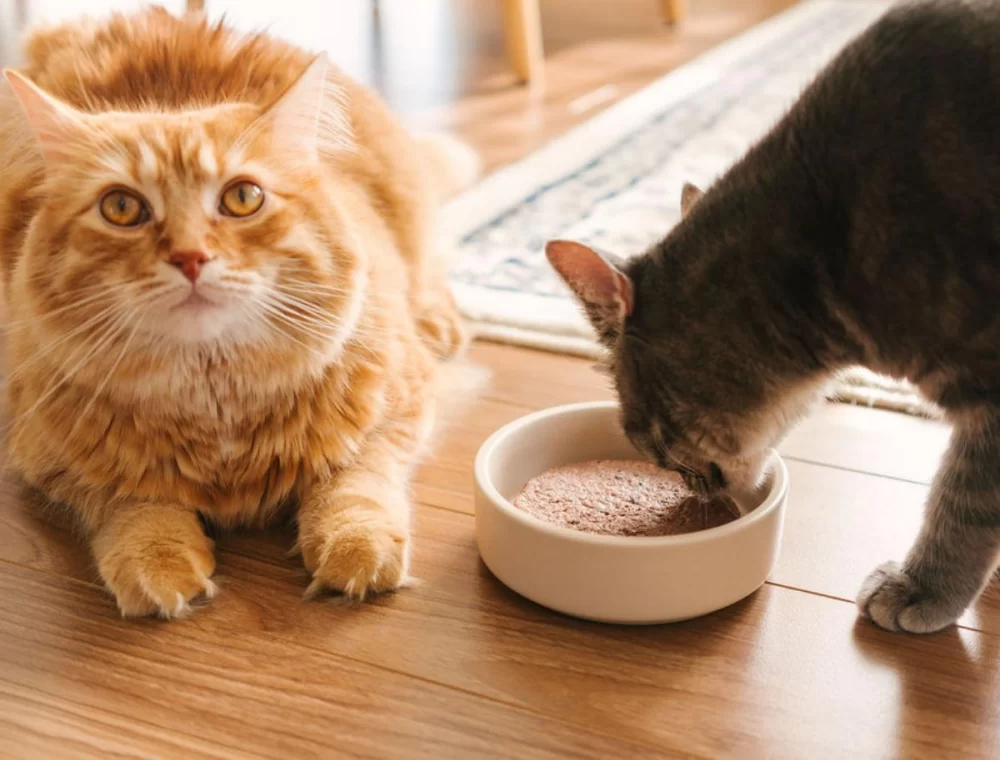- 1-Understanding-Urinary-Problems-in-Cats
- 2-Nutritional-Approaches-to-Managing-Urinary-Health
- 3-Key-Diet-Components-for-Cats-with-Urinary-Issues
- 4-Real-World-Examples-of-Diet-Impact-on-Urinary-Health
- 5-How-to-Choose-the-Right-Diet-and-Resources
1. Understanding Urinary Problems in Cats
Urinary problems in cats, such as feline lower urinary tract disease (FLUTD), are common and can range from mild irritation to life-threatening blockages. These issues often manifest as frequent urination attempts, blood in the urine, or painful urination. Understanding the underlying causes is critical before considering dietary interventions.
1.1 Causes and Risk Factors
Various factors contribute to urinary issues, including bladder inflammation, urinary crystals, bacterial infections, and stress. Diet plays a significant role since certain minerals and urine pH levels influence the formation of crystals and stones.
1.2 Importance of Early Management
Prompt attention to urinary health prevents complications like urinary blockages, especially in male cats. Nutrition tailored for urinary care can help maintain bladder health, reduce crystal formation, and support recovery.
2. Nutritional Approaches to Managing Urinary Health
Dietary management is one of the most effective ways to support cats with urinary problems. A well-planned diet addresses hydration, mineral balance, and urine acidity, all crucial for urinary tract health.
2.1 Increasing Water Intake
Hydration is fundamental. Wet food diets, such as high-quality canned or raw foods, increase moisture intake and dilute urine, reducing crystal formation risk. Cats often don’t drink enough water naturally, so diet choices are vital.
2.2 Controlling Mineral Content
Limiting minerals like magnesium, phosphorus, and calcium helps prevent the formation of struvite and calcium oxalate crystals. Specialized urinary health diets regulate these mineral levels precisely.
2.3 Managing Urine pH
The ideal urinary pH helps dissolve crystals and prevents new ones from forming. Diets designed for urinary health typically include ingredients that promote slightly acidic urine, optimal for minimizing crystal risks.
3. Key Diet Components for Cats with Urinary Issues
When selecting or recommending a diet for cats with urinary problems, certain nutritional components should be prioritized to ensure the best outcomes.
3.1 High-Quality Protein Sources
Protein quality matters as poor protein can strain the kidneys and bladder. Look for diets with digestible animal-based proteins that support overall health without contributing to urinary mineral imbalance.
3.2 Balanced Fiber Content
Fiber supports digestive health and can aid in weight management, which is important since obesity is a risk factor for urinary problems. A moderate fiber level also helps regulate urine concentration.
3.3 Added Supplements and Ingredients
Ingredients like omega-3 fatty acids, antioxidants, and glucosamine can reduce inflammation and support urinary tract lining health. Some diets include cranberry extract or D-mannose, which may help prevent bacterial adhesion in urinary tracts.
4. Real-World Examples of Diet Impact on Urinary Health
Consider the case of Milo, a 5-year-old male cat who suffered recurring urinary blockages. After switching to a specialized urinary diet rich in moisture and controlled minerals, his symptoms drastically improved. His owner noticed fewer painful urination episodes and no further blockages over the next year. Milo’s story highlights how targeted nutrition can transform a cat’s quality of life.
Similarly, many cat owners have shared how integrating wet food with balanced minerals helped their cats avoid emergency vet visits for urinary issues. These stories emphasize the value of proactive dietary management.
5. How to Choose the Right Diet and Resources
Selecting the best diets for cats with urinary problems involves consulting with veterinary professionals and considering your cat’s specific health needs. At Hidden Brook Veterinary, you can find expert advice and the most suitable urinary health diets tailored for your cat.
5.1 Consult a Veterinarian First
Urinary problems require careful diagnosis. A vet will recommend diet adjustments based on test results, ensuring safety and effectiveness.
5.2 Look for Veterinary-Approved Formulas
Diets formulated by veterinary nutritionists often provide the best balance of minerals, moisture, and additives that support urinary health.
5.3 Monitor and Adjust as Needed
Regular follow-ups and urine testing help track progress and adjust diets if necessary, maintaining long-term urinary health for your cat.
If you want reliable products and expert support for your cat’s urinary care, visit Hidden Brook Veterinary to explore recommended dietary options and professional services tailored to feline urinary health.











